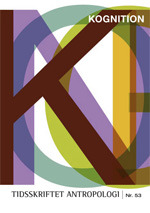SPROGLIG RELATIVISME: Hvordan og hvornår kommer den til udtryk i ontogenesen?
DOI:
https://doi.org/10.7146/ta.v0i53.106728Abstract
The paper is a theoretical and empirical contribution to the debate regarding the principle
of language relativity in relation to ontogenesis. In the first part of the paper it is argued
that the division between universal knowledge and culture-specific knowledge which is
present in the new discipline of cognitive science is based on a false dichotomy. This
has led to the ignorance of the complementary contributions that anthropology and
developmental psychology may offer for the investigation of different human knowledge
systems. The status quo regarding recent empirical evidence that demonstrates how
language effects cognition is then presented and discussed in terms of ecological validity.
The second part of the paper presents results from a recent cross-cultural and crosslinguistic
study that demonstrates the early effect of language on cognition. The study
investigates Danish (Scandinavian) and Zapotec (Mexican indigenous) infants’ spatial
cognition with respect to whether this is influenced by the specific linguistic structure of
each of the two languages. The results show that the two groups of children performed
in different, language-specific ways to the presented spatial task. Danish children
expressed a preference for imitating the behaviour of placing one object inside a another
object, whereas the Zapotec children were equally apt to place the respective objects in
an occlusive relationship. The results are discussed with regard to whether they give
support to the Whorfian hypothesis or to the notion of cultural relativity, as reflected in
the work of Vygotsky.
Downloads
Published
How to Cite
Issue
Section
License
Ophavsretten til artiklerne i Tidsskriftet Antropologi tilfalder forfatteren.
Artikler publiceret i Tidsskriftet Antropologi må citeres, downloades og videresendes for ikke-kommerciel brug, under forudsætning af normal akademisk reference til forfatter(e) samt tidsskrift, årgang, nummer og sider. Artiklerne må kun genudgives med eksplicit tilladelse fra forfatter(e) og tidsskriftet.


